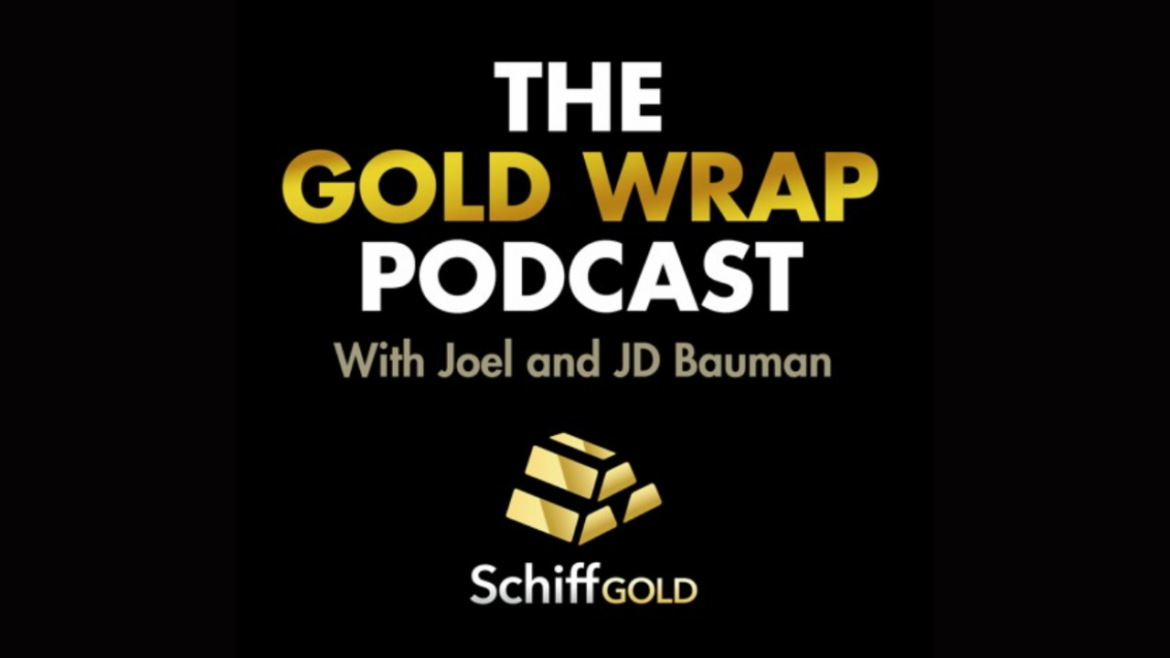Precious metals are apparently waking up. And here is where you can find the best deals.
Site:
Precious metals news
The Federal Reserve's adherence to a 2% inflation target before considering interest rate cuts is increasingly becoming a point of contention among liberals, adding a layer of political pressure on Fed Chair Jerome Powell, especially during a critical election year. This target, though formalized in policy, has sparked debates among left-leaning circles, with some advocating for a higher inflation target and others suggesting the introduction of a labor market-focused target alongside it. The recent public hearings featuring Powell have seen several Democrats scrutinizing the rationale behind the 2% figure and its significant influence within the central bank, indicating a growing desire for a reevaluation of monetary policy priorities.
The slow pace of inflation decline in the US last month, paired with a rebound in retail sales, suggests the Federal Reserve may maintain its current stance on interest rates without immediate cuts. The core consumer price index (CPI), which provides a clearer view of underlying inflation by excluding volatile items like food and fuel, is expected to have increased by 0.3% in February, following a 0.4% rise at the beginning of the year. This measured retreat in inflation and positive retail activity highlight the reasons behind the Fed's cautious approach to altering interest rates.
While speculations about the U.S. Federal Reserve easing monetary policies have ignited this week's gold market frenzy, the true groundwork for this unparalleled surge traces back to China's growing demand. After a period of stagnation, gold prices have shattered previous records, climbing to new highs each day since last Tuesday. Despite the absence of major geopolitical or economic events typically driving such spikes, the gold rally has puzzled many. Analysts point towards a variety of potential catalysts, including significant interest from investment funds and the influence of algorithmic trading amplifying market movements. This unexpected leap underscores the complex interplay of global financial strategies and the ever-volatile nature of precious metal markets.
Mar 11, 2024 - 06:31:52 PDT
The trend of "buy now, pay later" (BNPL) has shifted from a niche financing option for big-ticket items to a commonplace method for managing daily expenses among younger consumers. Originally popular for splurges like concert tickets or vacations, it's increasingly being used by Gen Z and millennials for routine purchases such as groceries, contact lenses, and household essentials. This shift is highlighted by the fact that individuals aged 35 and under make up over half of BNPL users, compared to their smaller representation among traditional credit card holders. The change in spending habits is also reflected in the types of products being financed through BNPL services, with apparel and accessories dropping to fourth place in popularity behind categories like travel, home, and garden, and hardware.
Mike Maloney discusses the current state of the silver market and why it’s time to buckle up for what could be one of the most significant crashes in history.
This weekend, Todd Sachs interviewed Peter on the state of the economy. They discuss the parallels between now and the 2007-2008 housing crisis, the role of economic sentiment in voters’ opinions, and why foreign central banks are losing faith in the dollar.
Rampant government spending continues to mask fundamental weaknesses in the US economy. Recently, national debt grew much faster than the economy for the third quarter in a row, just one of many warning signs concerning legendary investors. Our guest commentator explains just how much the government is spending to make the economy seem strong, even as the US remains in the midst of a "private sector recession.
 METALS & ENERGY UPDATE MAR 10th 2024: Shale Companies Cut Gas Production & Is The Gold Rally Sustainable
METALS & ENERGY UPDATE MAR 10th 2024: Shale Companies Cut Gas Production & Is The Gold Rally SustainableMarch 10, 2024
With the highest natural gas inventories in five years and the threat of the natural gas price heading to $1 or below, the shale gas companies started cutting production. Investors also want to know what's happening with the major gold rally and whether it is sustainable...
The analysis below covers the Employment picture released on the first Friday of every month. While most of the attention goes to the headline number, it can be helpful to look at the details, revisions, and other reports to get a better gauge of what is really going on.
 Central Banks Hedge Against the Dollar, Turning to Gold in a Strategic Shift
Central Banks Hedge Against the Dollar, Turning to Gold in a Strategic ShiftMar 8, 2024 - 13:34:33 PST
Central banks around the world are ramping up their gold reserves, a move aimed at reducing their reliance on the US dollar amidst growing concerns over America's continuing fiscal deficits and the threat of inflation. This trend occurs even as the dollar remains stable and real yields rise, with gold prices reaching their highest levels in five decades against most major currencies. Notably, this surge in gold's value is attributed primarily to the purchasing activities of central banks rather than to ETF investments or seasonal demand. Countries like China, Germany, and Turkey have significantly increased their gold holdings, reflecting a strategic shift towards protecting their reserve assets from the risks of dollar devaluation and instability within the global financial system.
Incremenum shares the company's monthly gold compass report.
China’s central bank added gold to its reserves for a sixteenth straight month in February as reserve diversification and geopolitical concerns push central banks to increase their allocation towards safe assets. We believe this is likely to continue this year...
ZeroHedge - In this week’s episode of Live from the Vault, Andrew Maguire brings an in-depth analysis of the recent price movements in both gold and silver, before diving deep into the increasingly depolarised silver market to expose its vulnerabilities. The London whistleblower takes listeners through the current bullish setup backed by a thorough analysis that highlights silver’s undervaluation and pervasive manipulation, before closing with an update on the BRICS currency.
The company Goldback is pioneering a novel approach to currency by introducing gold-made money intended for everyday transactions, such as grocery shopping or dining out. This innovative form of local, voluntary currency aims to integrate gold into daily commerce, enabling businesses that opt-in to accept gold as a valid form of payment. Each Goldback note represents 1/1000th of an ounce of gold, providing a tangible entry point into the precious metals market for those previously unfamiliar with gold investment. Although not recognized as official U.S. tender, in states like Nevada where gold payments are legally permissible, Goldback offers an intriguing alternative for both consumers and businesses keen on incorporating gold into their financial transactions.
Gold's price surged to a new record high, reaching up to $2,185.50 an ounce, driven by optimism following a pivotal US jobs report. This report has increased expectations that the Federal Reserve might soon lower interest rates, propelling gold's price upward for the eighth consecutive day. This rally, sparked by anticipated rate cuts, central bank acquisitions, and a resurgence in investor interest, has surprised many experienced market analysts due to its rapid and seemingly unprovoked nature, aside from the traditional factors that typically bolster gold's appeal.
In this riveting video, Mike Maloney delves into the exciting world of precious metals, particularly gold and silver.
February added 275,000 jobs in the U.S., surpassing economists' expectations set at 198,000. However, the unemployment rate ticked up to 3.9%, reflecting a complex labor market situation. Moreover, the excitement is tempered by revisions to the previous months' data, indicating that employment growth was not as strong as initially thought. This juxtaposition of strong job growth against a rising unemployment rate and adjusted past figures paints a nuanced picture of the current economic landscape, suggesting both resilience and underlying challenges in the labor market.
Gold surged to an all-time high this week, boosted by expectations for US rate cuts, geopolitical tensions, and China’s economic woes. How much further can it go?
JD and Joel discuss the new all-time highs in gold, Peter's recent podcast, the Fed's next move, and why silver has become an especially good deal.
This week, Peter reacts to politicians’ sophomoric views on inflation and explains the recent surge in the price of gold. He also comments on the first day of Jerome Powell’s congressional testimony. Be sure to watch Peter’s special extra episode from earlier this week if you missed it.













